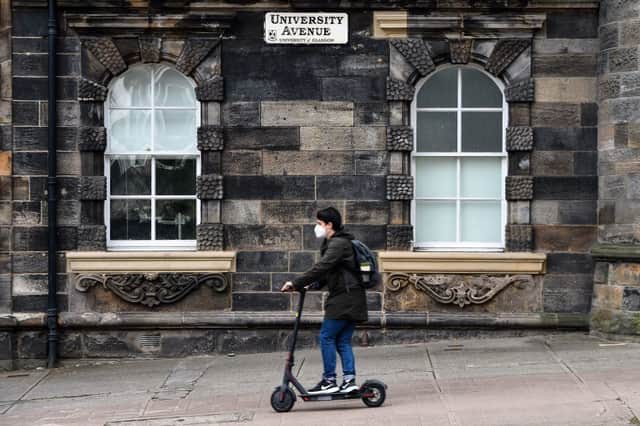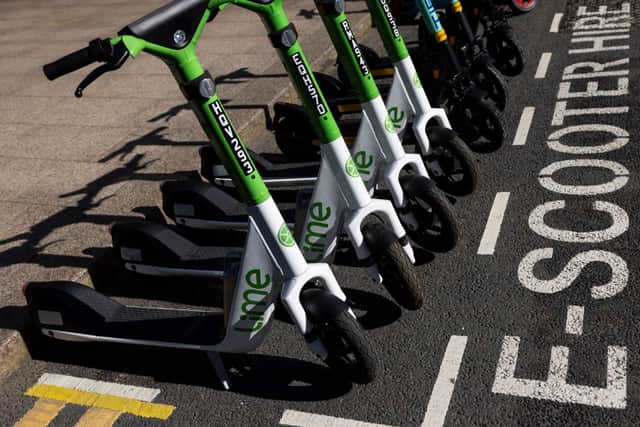E-scooter UK law change 2022: are electric scooters legal on the road - do you need a driving licence to ride?


Privately owned e-scooters could soon be legal for use on UK roads under plans revealed by Transport Minister Grant Shapps.
Mr Shapps said that legislation to properly regulate their use would be included in the Queen’s Speech on 10 May.
Advertisement
Hide AdAdvertisement
Hide AdCurrently, e-scooters can only be used on the roads if they are part of officially recognised trials. These trials are being held in 32 cities around England and use scooters fitted with automatic lights and a restricted top speed of 15.5mph.
However, the unregulated use of private e-scooters is a growing issue around the country, with soaring numbers of collisions and injuries involving riders.


Mr Shapps told the Commons Transport Select Committee that “in the future I want to crack down on the illegal use on roads of non-compliant e-scooters”.
Around one million e-scooters have been sold in the UK but models outwith the trials schemes can only be used on private land. Riders caught using an e-scooter on public roads face the same punishments as other drivers breaking the law, including fines of up to £300 and up to six penalty points.
Reacting to Mr Shapp’s announcement to the Commons transport select committee, committee member Simon Jupp expressed concerns over the plan, saying there have been “900 collisions, 11 of which were fatal”.
Mr Shapps replied: “We will take powers to properly regulate and then be able to decide the usage of them.
“They’re a reality, they exist.
“If these things exist they need to be made safe, and I think the trials have been useful in gathering data and there’s more data still to gather.”
E-scooters are viewed by many as an affordable and convenient mode of urban transport but there are concerns about their safety - for both riders and other road users.
Advertisement
Hide AdAdvertisement
Hide AdNew figures obtained from the NHS show a sharp rise in incidents involving e-scooters in recent years.
Data obtained by the Major Trauma Group from ambulance trusts in England, Wales and Northern Ireland showed that 713 e-scooter related accidents were attended by NHS ambulance vehicles during 2021, up from 392 the year before. The data also reveals that the number of patients being referred to A&E after e-scooter accidents increased by 40% between 2020 and 2021, with 173 patients being taken to their local A&E during 2021.
Speaking after the committee session, AA president Edmund King said: “The Government is right to address this issue and bring in regulations rather than allowing some of our cities to be overrun like the Wild West with illegal scooters.
“Micro-mobility and e-technology can have a positive effect on movement in our cities but we must ensure that movement is safe.”
RAC head of roads policy Nicholas Lyes said the Government had “a lot to consider” if it was to make e-scooter use legal and safe.
He commented: “There’s little doubt that e-scooters have the potential to transform the way many of us move about, and potentially even cut the numbers of short journeys taken by car. Legalising private e-scooters is a big step though and it’s crucial their use is regulated to ensure the safety of both riders and everyone else using the roads.
“There is a lot for the Government to consider to give people confidence that introducing more e-scooters onto our roads can be done safely – such as how they can be kept off pavements and out of pedestrianised areas, and whether they should be covered by compulsory insurance and built to meet certain standards. The concerns of groups including those representing visually impaired people must also be taken on board, as in the wrong hands e-scooters can cause serious injury.”
Comments
Want to join the conversation? Please or to comment on this article.
